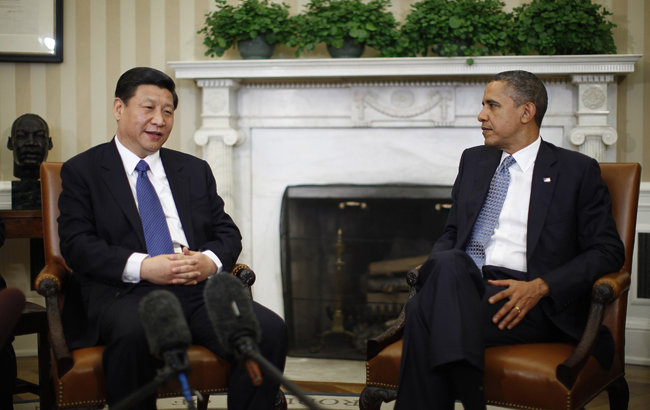(Cyberwar.news) President Obama and Chinese President Xi Jinping reached a historic cyber-theft agreement during the latter’s U.S. visit last week, but it comes only after suspected Chinese hackers have stolen data on millions of U.S. government employees, as well as military and corporate secrets.
Both leaders agreed that neither country would sanction state-sponsored hacking efforts to steal intellectual property. For his part, Obama said the U.S. does not engage in hacking efforts directed at private industry.
“The United States government does not engage in cyber economic espionage for commercial gain. And today, I can announce that our two countries have reached a common understanding on the way forward,” Obama said at a joint press conference with Xi Friday.
“We’ve agreed that neither the U.S. or the Chinese government will conduct or knowingly support cyber-enabled theft of intellectual property, including trade secrets or other confidential business information for commercial advantage. In addition, we’ll work together, and with other nations, to promote international rules of the road for appropriate conduct in cyberspace,” Obama added.
For his part, Xi said the bilateral talks were productive.
“During my visit, competent authorities of both countries have reached important consensus on joint fight against cyber-crimes,” he said, through an interpreter. “Both sides agree to step up crime cases, investigation assistance and information-sharing. And both government will not be engaged in or knowingly support online theft of intellectual properties. And we will explore the formulation of appropriate state, behavior and norms of the cyberspace.”
It wasn’t clear if the agreement covered official sponsorship of non-state hackers or hacking groups, which China has often used in order to avoid having its fingerprints on acts of data theft.
But there are critics of the deal. An editorial in The Wall Street Journal labeled the deal a “cyber mirage,” and said that essentially, Obama and Xi have “agreed to nothing.”
“In China the [ruling] Communist Party is by definition above the law, as are the companies and entities it controls. If Mr. Xi won’t admit to the problem, his minions won’t either. Knowing this, U.S. officials will also be reluctant to disclose much of what they know about Chinese cyber-espionage abuses lest they compromise U.S. sources and methods,” the paper said.
“All of this means the Chinese are unlikely to be deterred from engaging in the kind of cybertheft that has served them so well, such as the 2007 hack of one of the military contractors building the F-35 fighter jet, which allowed the Chinese to develop the copycat J-20 and J-31 stealth planes,” it added.
As NationalSecurity.news reported previously, hackers suspected of operating from China or on behalf of the Chinese government have stolen data on tens of millions of current and former U.S. government employees from the databases of the Office of Personnel Management (OPM), including many fingerprints.
According to the OPM, “federal experts believe that, as of now, the ability to misuse fingerprint data is limited.” But officials further acknowledged that, in the future, technologies could be developed to take better advantage of the stolen prints.
There are plans for an interagency working group consisting of the FBI, Department of Homeland Security and the Department of Defense, among others, to study the implications of the stolen fingerprint data, OPM officials said.
Also, China and Russia are reportedly cross-indexing stolen data, in a bid to identify and perhaps blackmail U.S. spies.
You can monitor breaking stories about China, Russia and the United States battling in cyberspace at AlternativeNews.com
Have you ‘liked’ Cyberwar.news on Facebook? Click here!
See also:


